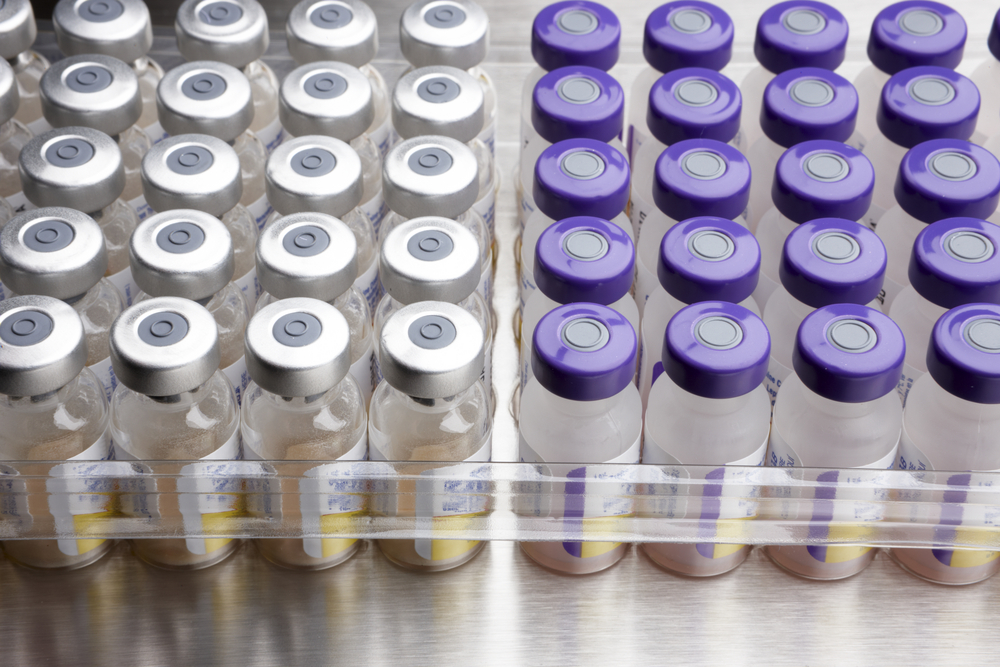NovoSeven-Hemlibra Combo Not Linked to Higher Risk of Thrombosis, Data Show
Written by |

Simultaneous use of NovoSeven (recombinant factor VIIa, rFVIIa) and Hemlibra (emicizumab) in patients with hemophilia A is not associated with higher risk of thrombosis, new analysis of the Phase 3 HAVEN program shows.
The trials’ findings were reported in the study, “Safety analysis of rFVIIa with emicizumab dosing in congenital hemophilia A with inhibitors: Experience from the HAVEN clinical program,” published in The Journal of Thrombosis and Haemostasis.
Hemophilia A is characterized by the lack of a specific clotting protein, called factor VIII (or FVIII), which impairs the ability of the blood to clot and prevent bleedings.
Current available treatments are based on administration of synthetic versions of FVIII as a preventive measure to avoid spontaneous bleeding episodes. However, some patients may develop an immune response against the artificial FVIII by producing antibodies that inhibit its activity, rendering the treatment useless.
Bypassing agents are an alternative treatment option for patients with inhibitors, as they enable blood clotting using alternative routes that do not depend on FVIII.
NovoSeven (eptacog alfa activated) is a bypassing agent developed by Novo Nordisk that stimulates blood clotting by providing an artificial form of FVIIa to patients. It is indicated for the treatment of bleeding episodes, or as a preventive measure, in patients with hemophilia A who develop antibodies against FVIII or coagulation factor IX (or FIX).
Genentech’s Hemlibra is a bi-specific antibody; i.e. the ability to bind to two different targets simultaneously. It binds to FIX and factor X, mimicking the function of FVIII in promoting the blood-clotting process. It has also been approved for the treatment of hemophilia A in people positive for FVIII inhibitors.
“Because of their mode of action, the procoagulant agents rFVIIa and emicizumab increase [blood clotting] potential and therefore there is a theoretical concern that their concomitant use could be associated with an increased incidence of [blood vessel blockage, called thrombosis],” researchers stated.
A new analysis of clinical data collected from three pivotal Phase 3 trials — HAVEN 1 (NCT02622321), HAVEN 2 (NCT02795767), and HAVEN 4 (NCT03020160) — revealed that simultaneous treatment with NovoSeven and Hemlibra does not increase the risk of thrombosis in patients with hemophilia A with FVIII inhibitors. This analysis was the result of a collaboration between Novo Nordisk and Roche.
Over the course of the trials, 61 patients who were taking Hemlibra in a prophylaxis regimen also had to receive NovoSeven injections to manage a total of 210 bleeding episodes. In most cases, NovoSeven was administered at a dose of 100 μg/kg to initiate treatment, and its dosing schedule (every two to three hours) was consistent with previous recommendations and current clinical use.
Safety analysis did not reveal any new or unexpected issues related to NovoSeven or its simultaneous use with Hemlibra in any of the studies. No serious adverse events, including thrombotic microangiopathy or thromboembolic events, were linked to NovoSeven or its use in conjunction with Hemlibra.
“Notwithstanding the limitations resulting from the small number of events evaluated, there is no evidence that concomitant use of rFVIIa with emicizumab prophylaxis changes the benefit-risk profile of rFVIIa as indicated in its prescribing information,” the researchers said.
They recommended that more studies be done in larger groups of patients to further evaluate the safety of simultaneous clinical use of NovoSeven and Hemlibra.


